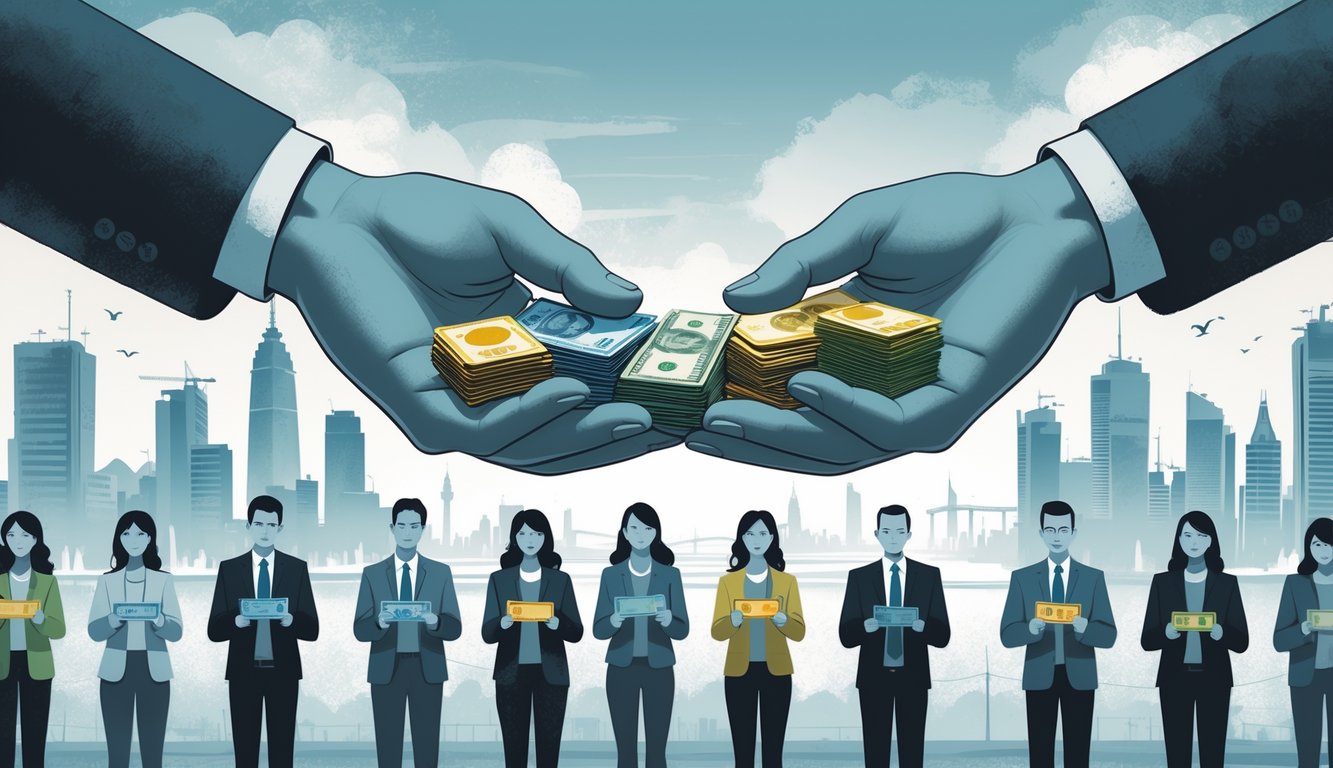
Future Outlook and Training for Financial Institutions
Fixed-for-floating swaps used to be boring. Now? Quiet panic. As cross-border deals dry up, banks are scrambling—everyone’s stacking current account data next to EUR/USD tables, sweating over every tiny exchange rate move. Forget old routines; now it’s about figuring out what’s changed since breakfast.
Financial Management Best Practices
Is anyone actually on top of derivative oversight these days? I sat through a risk committee meeting last quarter—everyone’s glued to spreadsheets full of floating-for-floating swaps, but nobody could say if last month’s basis-point swing was just noise or a real problem. Deloitte’s 2025 outlook says higher capital requirements make lending expensive, and private credit is scooping up deals banks can’t touch. If you haven’t stress-tested for a sudden freeze in interbank swaps, your exposure could blow up overnight. Basel III updates hit, and every desk is running drills, but I still see cash flow mismatches, especially with cross-border settlements.
Did I forget something? Right—mark-to-market values on swap portfolios keep messing up overnight positions. My dashboard flagged it twice last week, but the back office just left it for Monday. Sometimes those local currency mismatches don’t even show until after you’ve settled. If you ask me, half these reconciliations are just post-mortems.
Training and Capacity Building
Every time there’s a new training session about multi-currency settlements or some weird derivative, it feels like I’ve done this before—except now compliance actually cares. At our last internal swap training, three managers admitted they’d mixed up fixed-for-fixed and floating-for-floating swaps. That’s scarier than any market move, honestly. Financial cooperation used to be a checkbox, but now, if your team can’t tell the difference between hedging and speculation, those errors pile up fast. A friend at a regional bank told me they skip swap simulations in onboarding because “we never used those before.” Does that even make sense anymore?
I started keeping track of how often people mix up notional exposure with cash flow at risk—last month? Five analysts, two different markets. Training vendors claim digital skills workshops boost swap efficiency by 23%, but honestly, half the front office still uses templates from 2019. I wish there were mandatory refresher tests, or at least some consequences for botching EUR/USD exposure reports, but nope—just PowerPoints, nervous questions, and nobody wanting to admit they’re lost.
Frequently Asked Questions
It’s always chaos when swap news hits. Yesterday it’s a loophole, today it’s new policies, and suddenly Qatari banks freeze foreign deals—nobody gets the memo before breakfast. My inbox? Full of people complaining about blocked travel plans and weird ATM alerts.
What exactly is a currency swap and how does it work for international transactions?
Picture this: two parties—usually governments, big corporates, or central banks—just decide, “Hey, I’ll trade you $10 million for yen, we’ll swap back in two years, and by the way, you pay me interest in dollars, I’ll pay you in yen.” It’s not your neighborhood currency booth. It’s a weird long-term handshake with scheduled payments.
I heard a treasury guy say, “We use swaps to lock in funding and manage risk; otherwise, you’re just gambling.” Spot FX trades don’t cut it. And yet, TikTok will have you believing it’s a hack for cheap vacation euros. Good luck with that.
Can local residents still engage in currency swaps when traveling abroad?
Nope, not happening. Banks—especially in Qatar, but not just there—face new restrictions. You can’t just swap riyals for foreign currency with whoever you want. My cousin tried to “currency swap” in Germany. Teller handed her a form in Dutch and stared her down. Find a loophole? Let me know.
If you’re a traveler thinking you’ll just walk into a bank and swap cash, forget it. Swaps aren’t for people heading to concerts in Paris. Try it in person and you’ll give up before the staff does.
What recent regulations have been revealed concerning the use of currency swaps?
Honestly, Reuters probably knows more than local bankers. In Qatar, they rolled out a rule: you can’t swap currency abroad without central bank approval. It’s not a secret, but somehow nobody hears about it until they get blocked at the counter.
You only find out after your plans fall apart. Regulators? Always vague. “New measures to stabilize domestic markets.” Sure, because your weekend in Istanbul is what’s destabilizing the economy.
How do currency swap revelations impact the average person’s foreign exchange activities?
Tried to swap QAR in London—got hit with paperwork and a “compliance policy” speech. Two weeks ago, a friend texted: “Can’t swap riyal here, is this new?” Apparently, yes. Nobody tells travelers anything, so everyone’s googling “currency swap workaround” at the airport.
Most people didn’t even know what a currency swap was—until they got blocked. ATMs just spit out the same menu, and if something changed, your card just stops working. Good luck figuring out why.
What are the potential consequences for using currency swaps in an unauthorized manner?
Try to get clever with unauthorized swaps, and suddenly your account’s flagged or you walk out of the bank with a “request denied” slip. Sometimes there are fines, sometimes the bank gets a compliance investigation. I remember a compliance officer snapping, “Even minor violations can get escalated.”
Honestly, you’re probably not breaking the law by accident—unless that’s your thing. But nothing like a blocked card abroad to make you wonder if you’ve just committed a financial crime.
How can individuals stay informed and compliant with new currency exchange policies?
People keep telling me to trust random Twitter alerts—yeah, right, like that’s ever gone smoothly. I just end up doomscrolling and panicking over rumors. So now I force myself to slog through the central bank’s website or whatever the main local bank is, right before I travel. It’s boring. But at least I don’t get stuck at some currency counter arguing with a guy who’s just doing his job. I have this sad little folder of bookmarks—official policy PDFs, links, all that—because, honestly, these rules change more often than I wash my reusable water bottle. Embarrassing, but true.
And don’t even get me started on financial news. Journalists always seem to know about new policies before the actual policy exists, and half the time they’re just guessing. I try to read at least two sources, but who even knows if that’s enough? Sometimes I’m standing in line at the bank, totally blanking, and I’ll just look for the manager who’s pretending not to notice me. They always know what’s up, way more than whatever the website says. Or maybe they’re just better at faking it.



